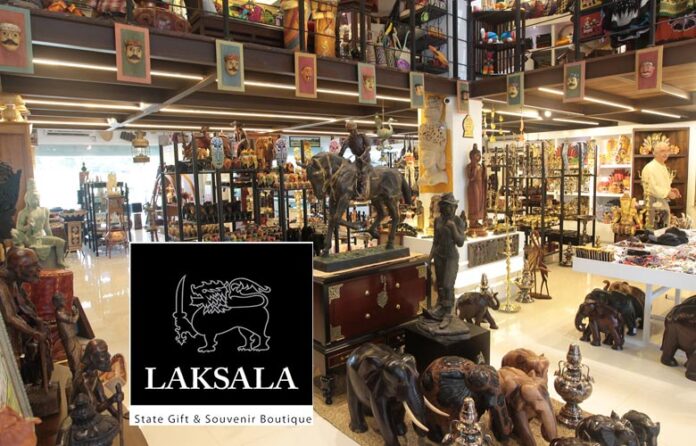November 11, Colombo (LNW): The process of permitting a foreign national to establish a gem business at the Thimbirigasyaya branch of Laksala—an institution originally founded to promote Sri Lankan handicrafts in international markets—is reportedly in progress, with the outlet expected to open tomorrow (12).
According to sources, numerous irregularities and questionable aspects have emerged throughout the course of this initiative.
Laksala, formally known as the Sri Lanka Handicrafts Board, was founded under the National Crafts Council and Allied Institutions Act No. 35 of 1982 with the purpose of advancing local craftsmanship to the global stage. Conceived by the late Prime Minister Sirimavo Bandaranaike, the institution was designed to help rural artisans access fair markets and improve the quality and reach of traditional arts and crafts. Laksala operates through a network of retail outlets and functions as a self-financing entity without dependence on government funding.
During the Covid-19 pandemic, Laksala—like many other businesses—faced severe financial challenges and was unable to pay staff salaries. In response, the then State Minister for the sector, Dayasiri Jayasekara, entered into an agreement with SALA Global, a company under SALA Enterprises, which includes a Chinese director. The agreement sought to create an online platform to sell Laksala’s products in markets such as the United Arab Emirates (UAE), Japan, and China. However, this venture ultimately failed to achieve its intended results.
Subsequently, SALA Global expressed interest in the small-scale gem sales that Laksala had been conducting for years. These gem sales, though limited in scope, were intended to allow tourists purchasing local handicrafts to buy Sri Lankan gems conveniently at the same location. Revenue from these sales helped sustain the institution and ensured that artisans received fair compensation for their work.
It is reported that the aforementioned Chinese businessman later submitted a proposal to the then State Minister, Prasanna Ranaweera, seeking to expand this initiative into a large-scale gem business operating under the Laksala brand. Detailed plans were prepared for this purpose. However, the project failed to progress during Minister Ranaweera’s tenure due to a number of complications and unresolved concerns.
Under the current “Renaissance” administration, it is understood that the same businessman has now completed the necessary preparations and intends to inaugurate the new venture imminently.
This development has raised several significant concerns.
Firstly, Laksala was established by an Act of Parliament with the sole mandate of supporting and marketing products of local artisans—not for generating profits for foreign entities. The proposed gem business therefore diverges from Laksala’s founding purpose.
Secondly, Laksala was never intended to engage in large-scale gem trading. That responsibility lies with the Sri Lanka Gem and Jewellery Authority, which regulates the industry and oversees gem sales by local traders. Given this, the decision to allow a Chinese businessman to conduct gem trading operations within Laksala’s premises is highly questionable.
A third and particularly serious concern relates to potential damage to the reputation of both the Laksala brand and the Sri Lankan gem industry. There have been numerous incidents of counterfeit or low-quality gems being sold to tourists by foreign traders falsely marketed as Sri Lankan products—often involving Chinese nationals. Granting a Chinese businessman the right to operate under the state-backed Laksala name risks undermining consumer confidence and tarnishing Sri Lanka’s international reputation for genuine gemstones.
Fourthly, serious questions arise as to whether proper procedures were followed in leasing or allocating space at Laksala to a private operator. Experts point out that under the government’s Procurement Guidelines (2006), an open tender and evaluation process is mandatory. Available information suggests that such a process was not conducted, raising suspicions of potential corruption.
Industry experts in the handicraft sector have therefore urged government authorities to intervene immediately to halt what they describe as a highly detrimental and irregular initiative.
Commentators further note that it is unsurprising for a politician such as Prasanna Ranaweera to have pursued such a deal, given the transactional nature of past arrangements. However, they express astonishment that figures such as Minister Sunil Handunnetti and Deputy Minister Chaturanga Abeysinghe—who came to power pledging to reject such questionable dealings—appear to have supported this endeavour.
Observers note that had this project been initiated during Ranaweera’s tenure, those same politicians would likely have vocally opposed it.
This situation, critics argue, raises the broader question of whether actions once condemned as improper are now being quietly redefined as acceptable. It remains the responsibility of the country’s leaders to assure the public that this is not the case.
